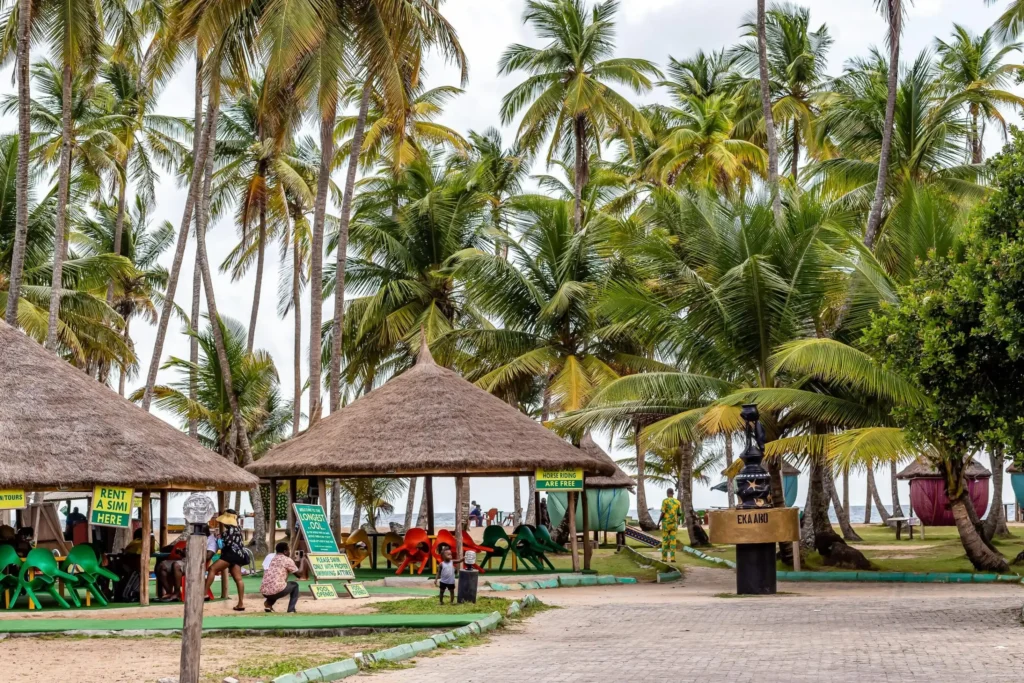The World Travel and Tourism Council (WTTC) has projected that Nigeria’s travel and tourism sector will contribute approximately 6.2% annually to the country’s Gross Domestic Product (GDP) over the coming years. This optimistic outlook positions tourism as a major economic driver capable of generating employment, increasing public revenue, and catalyzing socio-economic transformation across Nigeria’s diverse regions.
The latest WTTC forecast underlines the growing importance of tourism not only as a cultural bridge but also as a significant pillar of economic diversification. With global attention shifting toward Africa as an emerging tourism market, Nigeria—thanks to its rich cultural heritage, vibrant creative economy, and youthful population—is poised to leverage these strengths for long-term gains.
A Sector on the Rise
Despite lingering economic challenges and infrastructure limitations, Nigeria’s tourism and travel industry has shown strong signs of recovery and momentum since the COVID-19 pandemic. From local festivals and diaspora return programs to improved international flight connections and innovative visa reforms, the country has ramped up efforts to reposition itself as a leading African destination.
The WTTC’s projection of a 6.2% annual contribution to GDP reflects the confidence that global tourism analysts and investors now have in Nigeria’s market potential. According to the council’s data, this percentage could translate to billions of dollars in direct and indirect contributions to national income annually.
In practical terms, this growth means more hospitality developments, new jobs across service sectors, increased tax revenues, and a stronger inflow of foreign exchange—all of which are essential to Nigeria’s broader economic aspirations.
Boosting Employment Opportunities Nationwide
One of the most compelling aspects of the WTTC forecast is its implication for job creation. As tourism expands, so does the demand for a wide range of workers—from hotel staff, chefs, and tour guides to event planners, drivers, curators, and digital marketers.
The WTTC estimates that millions of Nigerians could be employed—either directly or indirectly—through tourism-linked services if the sector’s growth continues at this pace. Given the country’s high youth population and pressing unemployment rate, this expansion could offer a lifeline to thousands seeking meaningful work.
Importantly, tourism-related employment often favors entry-level workers and those with creative or hospitality skills, which makes it an inclusive sector for job growth. In urban hubs like Lagos and Abuja, as well as cultural hotspots such as Calabar, Oshogbo, and Kano, tourism has already begun to stimulate entrepreneurship and youth engagement.

Catalyzing Infrastructure Development
The anticipated growth in tourism’s contribution to GDP also implies stronger justification for infrastructure investment. Airports, roads, public transportation, and power supply are critical to any successful tourism strategy. With more government and private stakeholders recognizing the value of tourism, there is increasing momentum to prioritize improvements in these areas.
Projects like the Lagos-Ibadan rail line, airport terminal upgrades in Lagos, Enugu, and Abuja, and better access roads to heritage sites have already begun to align with national tourism goals. Additionally, new hotel developments and resort constructions in coastal and northern states reflect the rising investor confidence in Nigeria’s hospitality landscape.
Improved infrastructure not only enhances visitor experiences but also benefits local communities, facilitating better mobility, increased business opportunities, and greater access to public services.
Diaspora Engagement and Cultural Revival
A major contributor to tourism’s rising profile in Nigeria is the strong engagement with the African diaspora. Events like the Ipada Carnival, Afrobeats concerts, and pan-African summits in Lagos and Abuja have helped attract thousands of Nigerian descendants from across Europe and North America.
The WTTC report also highlighted the impact of cultural tourism—especially events centered on music, fashion, film, and food—as a vital revenue stream. These gatherings not only reinforce national pride but also allow the diaspora to reconnect with their roots, support local businesses, and stimulate cultural industries.
With the Nigerian government now prioritizing diaspora initiatives in its tourism strategy, the economic dividends are likely to multiply. Simplified visa procedures, curated heritage experiences, and inclusive festivals have already demonstrated success in drawing diaspora travelers and encouraging repeat visits.
Government Commitment and Sectoral Reform
The WTTC projection also serves as a nod to recent policy reforms and institutional commitments from the Nigerian government. In 2023, the creation of a standalone Ministry of Tourism signaled a renewed focus on the industry as a core revenue source. Complementing this was the release of tourism master plans by several states, including Lagos, Oyo, and Cross River.
Other positive steps include visa-on-arrival options for African nationals, better coordination between the Nigerian Immigration Service and tourism bodies, and partnerships with international airlines to improve accessibility to major cities and regional attractions.
The government’s collaboration with private sector players has been instrumental in organizing international expos, cultural festivals, and travel summits, including the African Heritage and Tourism Education Summit (AHTES), which further showcase Nigeria’s potential to global investors.
Challenges on the Path to 6.2%
Despite these developments, several hurdles still stand in the way of realizing the full 6.2% GDP contribution projected by the WTTC. Key among these challenges are insecurity, inconsistent regulatory policies, multiple taxation issues, and inadequate promotional efforts at the global level.
Insecurity in some regions, particularly the North-East and North-West, limits the development of otherwise rich tourism zones. Additionally, the absence of a unified national tourism brand and the lack of a comprehensive digital platform for booking and information sharing weaken Nigeria’s competitiveness compared to peer nations.
Experts argue that overcoming these challenges will require sustained political will, targeted investment, and cross-sector collaboration. They emphasize the need for reliable data, modern tourism infrastructure, and a stronger focus on capacity-building within the industry.
Looking Ahead: Unlocking Full Potential
If Nigeria is to achieve the WTTC’s projected growth trajectory, stakeholders must stay committed to long-term, inclusive strategies. This includes developing tourism education programs, empowering local communities to participate in the sector, and ensuring that environmental and cultural sustainability guide all development plans.
Furthermore, tapping into global trends such as eco-tourism, heritage travel, digital nomad tourism, and health and wellness retreats can open new avenues for growth. By aligning with the United Nations Sustainable Development Goals (SDGs), Nigeria’s tourism sector can also contribute meaningfully to gender equality, poverty reduction, and environmental conservation.
The expected 6.2% contribution to GDP is not just a statistical forecast—it represents a tangible opportunity for national transformation if properly harnessed.
Conclusion: A Pathway to Inclusive Growth
The WTTC’s forecast places a spotlight on Nigeria’s emerging role in global tourism. With consistent support, strategic investment, and community engagement, the sector can drive inclusive economic growth, create jobs, and help rebrand Nigeria on the international stage.
As policymakers and private investors build on the 2023 gains, the tourism industry may well become a cornerstone of Nigeria’s future prosperity—turning cultural capital into sustainable development and positioning the country as a top destination in Africa and beyond.







